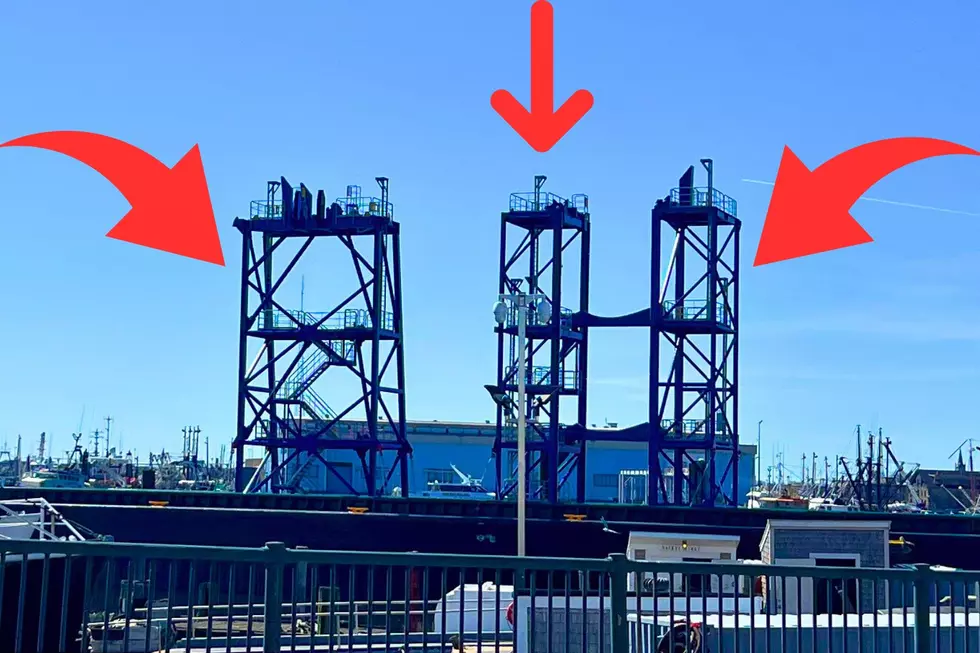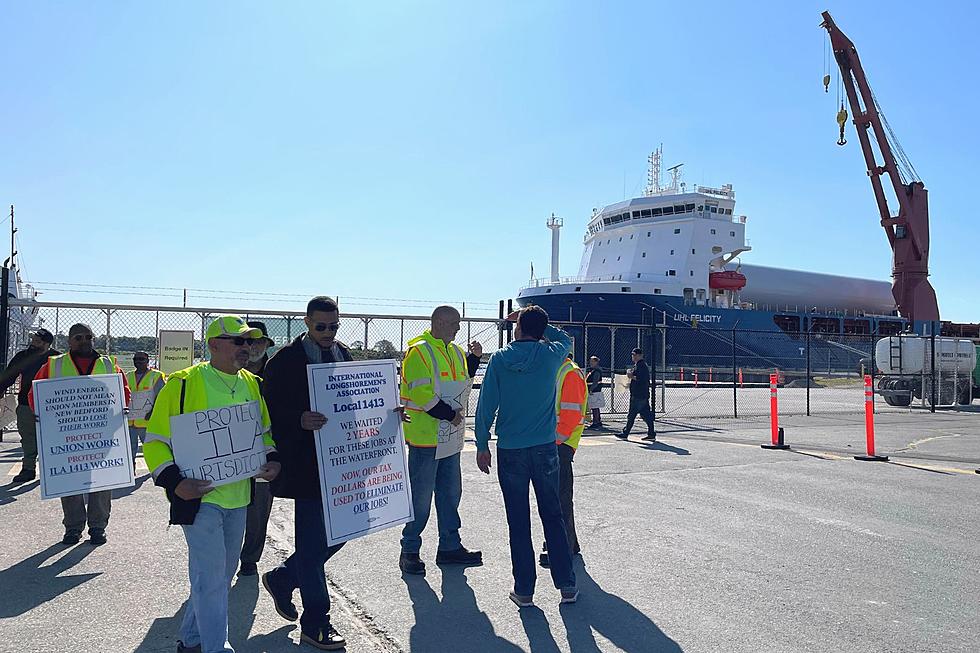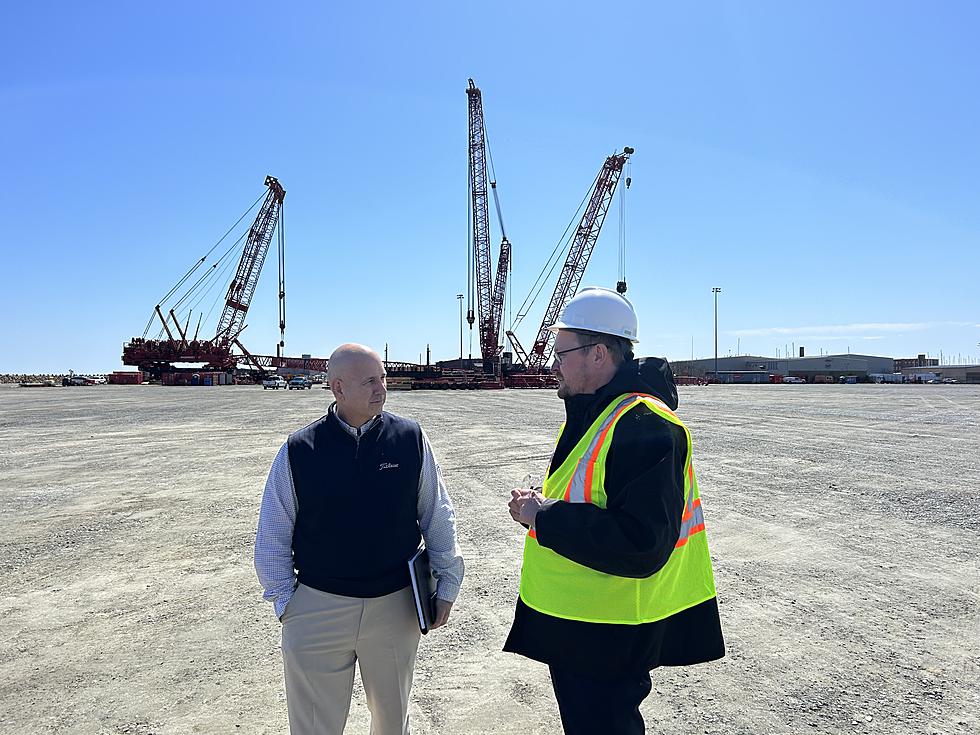
Fed Review to Further Delay Vineyard Wind
STATE HOUSE, BOSTON — Vineyard Wind, the $2.8 billion, 800-megawatt offshore wind project planned for the waters off Martha's Vineyard, has been delayed and will not move forward on the timeline it has been anticipating due to a federal agency's decision to undertake a broad study of the potential impacts of offshore wind projects planned up and down the coast.
The decision of the U.S. Bureau of Ocean Energy Management to launch a "cumulative impacts analysis" and hold up the approval of a key permit for Vineyard Wind until that analysis is complete will likely upend the supply chain, financing and construction timeline for the project chosen by the Baker administration and state utility companies to fulfill part of a 2016 clean energy law.
Despite what is likely to be significant disruption to the project's current plans, Vineyard Wind officials were adamant Friday that the development remains workable and will move forward on a new, yet-to-be-determined, timeline.
"To be clear, the Vineyard Wind 1 project remains viable and continues to move forward," officials said.
The project has been on unsteady ground in recent weeks after the Department of the Interior and the Bureau of Ocean Energy Management notified project officials that the government was "not yet prepared" to issue a final environmental impact statement, which had been expected in July.
On Friday, BOEM said it had received comments from stakeholders and other federal agencies requesting "a more robust cumulative analysis" and decided to launch a more comprehensive look at offshore wind projects after federal officials "determined that a greater build-out of offshore wind capacity is reasonably foreseeable than was analyzed in the initial draft EIS" for Vineyard Wind.
"Considering such comments, and taking into account recent state offshore wind procurement announcements, BOEM is expanding its cumulative analysis of projects within its draft Environmental Impact Statement (EIS) to also include projects that have been awarded power purchase agreements, but may not have submitted Construction and Operations Plans (COPs), and potential scenarios based on state procurements that are expected to be awarded," the agency said.
In an interview with Bloomberg News on Friday, U.S. Interior Secretary David Bernhardt said, "For offshore wind to thrive on the outer continental shelf, the federal government has to dot their I's and cross their T's."
Vineyard Wind officials implored the federal government to wrap up its additional review as quickly as possible to allow the landmark project to advance. BOEM gave no timeline for its review.
"While we appreciate that the discussion on cumulative impacts is driven by rapid growth of the industry beyond our project, we urge the federal government to complete the review of Vineyard Wind 1 as quickly as possible," Vineyard Wind officials said in a statement. "The project is poised to kickstart a new offshore wind industry that promises industrial growth along with new manufacturing and blue-collar employment across the United States from New England to Louisiana to Colorado and beyond."
The new delay for Vineyard Wind raises the question of whether the project will still qualify for the 12 percent Investment Tax Credit (ITC), which is due to sunset at the end of the year. That tax credit is thought to be a linchpin of Vineyard Wind's financing and it was unclear Friday whether the latest delay put the ITC out of reach.
Project officials had indicated that the entire Vineyard Wind effort is at risk without a favorable federal response by the end of August. Federal officials say they are operating within a review window that extends into March 2020.
Gov. Charlie Baker traveled to Washington, D.C., on July 29 to meet with Bernhardt about the project and the federal government's review. Afterward, Baker said his administration would work with the Congressional delegation and Vineyard Wind "to put together a cure plan because we really want this project to happen."
On Friday, Baker's office called the latest delay "a step in the wrong direction" and urged the federal government to "move expeditiously" in its review.
"The Baker-Polito Administration ... remains committed to advancing Massachusetts as a national leader in developing offshore wind energy and will continue to work with federal regulators, Vineyard Wind and all stakeholders involved to deliver the Commonwealth's ratepayers with clean, safe and reliable energy," Baker spokesman Brendan Moss said.
Vineyard Wind had been planning to financially close on its project and begin on-shore construction work this year, put the first turbine into the seabed in 2021 and have the 84-turbine wind farm generating electricity in 2022. The project is backed by Copenhagen Infrastructure Partners and Avangrid Renewables.
Attorney General Maura Healey on Friday called the decision from Interior and BOEM to further delay Vineyard Wind and to review cumulative impacts "extremely disappointing to Massachusetts ratepayers and those working to advance the offshore wind industry."
"The Vineyard Wind project will deliver good-paying jobs while helping address our climate crisis," Healey said. "My office is reviewing all of our available options to ensure this project moves forward."
U.S. Rep. Joseph Kennedy III, who has been working with others in the Congressional delegation and Baker to lobby federal officials to approve the project, took issue Friday with the way the Trump administration "has cut every corner and moved through the environmental review period at record speed" to allow drilling in the Arctic National Wildlife Refuge while delaying clean energy projects like Vineyard Wind.
"When it comes to the nation's first major offshore wind project -- which has gone through years of extensive study, public comment and mitigation plans for impacted communities -- they are trying to delay it to death. Their double standard on energy infrastructure is putting jobs, manufacturing and economic activity at risk, from Southeastern New England to Texas to Louisiana," Kennedy said. "Worse still, they are threatening the future of large-scale renewable energy development at a moment when the price of our oil and gas dependency becomes more obvious -- and more terrifying -- by the day."
U.S. Rep. William Keating, who represents Cape Cod and the Islands, bashed the Trump administration's "terrible record of promoting fossil fuels at the expense of renewable energy" and said the latest Vineyard Wind delay "is another example of this Administration’s hostility toward those seeking to combat climate change."
"There is consensus that we need to fully understand the consequences of offshore wind development, as they are incredibly important for our fishermen and our coastal communities. I supported our local communities throughout this process to ensure their many legitimate issues were brought to the fore," Keating said. "However, in this instance, I believe that the Trump Administration has not dealt fairly with Vineyard Wind. It has instead chosen to call into question the entire future of renewable energy in this country. The potential concerns that the Administration raised could have been addressed subsequent to the start of construction of Vineyard Wind."
Friday afternoon, as news of the new delay was spreading, Vineyard Wind tweeted a Washington Times article that included the sub-headline "Trump deserves credit for promoting wind energy production, creating jobs."
More From WBSM-AM/AM 1420



![Wareham to Host Offshore Wind Opportunity Forum [TOWNSQUARE SUNDAY]](http://townsquare.media/site/518/files/2014/06/172545585.jpg?w=980&q=75)




![How New Bedford Businesses Can Benefit From Offshore Wind [TOWNSQUARE SUNDAY]](http://townsquare.media/site/518/files/2019/02/GettyImages-81060055.jpg?w=980&q=75)
